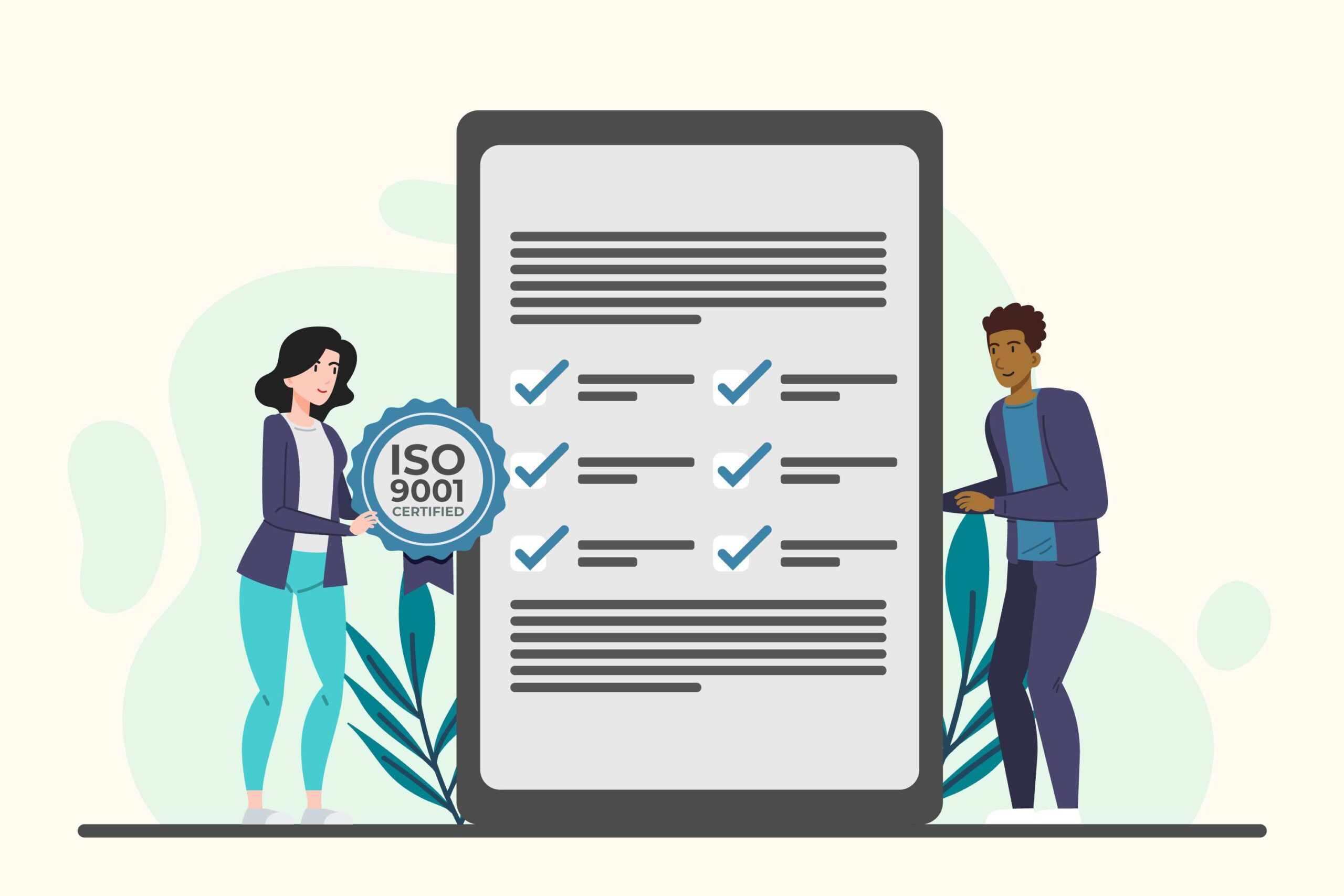
Overcoming DME Billing Challenges: Expert Strategies for Enhanced Revenue and Compliance

Durable Medical Equipment (DME) refers to a broad category of medical equipment and supplies prescribed by healthcare providers for the treatment or management of various medical conditions. These items, ranging from wheelchairs and oxygen equipment to crutches and diabetic supplies, play a vital role in enhancing the quality of life for patients with diverse healthcare needs. DME billing involves the process of appropriately coding and submitting claims for durable medical equipment and associated services to insurance payers to receive reimbursement for the provided equipment. However, due to the complexity of billing procedures, reimbursement guidelines, and compliance restrictions, DME billing poses significant challenges for healthcare providers and billing professionals.
2. The Significance of Accurate DME Billing
Accurate DME billing is crucial for healthcare practices for several reasons. First and foremost, it ensures financial stability by enabling timely reimbursements, avoiding revenue leakage, and maximizing cash flow. Accurate billing practices also help practices comply with healthcare regulations, lowering the risk of audits and legal complications. Additionally, accurate DME billing improves overall operational efficiency, allowing medical professionals to focus on patient care without being burdened by administrative tasks.
3. Common Challenges in DME Billing
DME billing presents various challenges that healthcare providers and billing professionals must address to optimize revenue cycle management and ensure compliance. Let’s explore the most common challenges faced in DME billing and strategies to overcome them.
Complex Requirements for Billing and Coding
One of the primary challenges in DME billing lies in the complex coding and billing specifications. Proper identification and coding of equipment, supplies, and services are essential for accurate billing. However, the diverse nature of DME requires in-depth knowledge and accuracy in coding. Failure to accurately code DME items can result in claim denials or underpayments, impacting the financial health of the practice. To address this challenge, healthcare providers should invest in continuous training for staff involved in coding and documentation. Regular updates on coding changes and compliance requirements should be provided to ensure adherence to industry standards. Additionally, leveraging technology, such as coding software and Electronic Health Records (EHRs), can enhance accuracy and efficiency in the coding process.
Limited Knowledge of Reimbursement Procedures
Staying up to date on the constantly evolving reimbursement laws and regulations can be challenging for DME providers. Each payer has unique coverage restrictions, paperwork requirements, and billing practices. Lack of knowledge and understanding of reimbursement procedures can result in delayed or denied reimbursements. To overcome this challenge, DME providers should prioritize staying informed about changes in reimbursement guidelines, payer policies, and billing practices. Regular training and education on payer-specific requirements can help ensure accurate billing and maximize reimbursement rates.
Ineffective Claims Processing and Denial Handling
Ineffective claims management procedures can lead to delayed reimbursements and revenue loss. DME providers must establish streamlined processes for claims filing, follow-up, and denial management to maximize reimbursement rates. This includes training staff on effective claims processing, leveraging technology for claims submission and tracking, and implementing proactive denial management strategies. By addressing denials promptly and efficiently, practices can optimize their revenue cycle and improve overall financial performance.
Adherence to Evolving Rules and Regulations
Compliance with rules and regulations is crucial for DME billing. The regulatory landscape for DME medical billing is complex and subject to frequent change. Staying on top of these changes is crucial for avoiding compliance problems and potential financial penalties. Practices can address this challenge by building a dedicated compliance team or collaborating with external experts who specialize in medical regulations. Regular audits and assessments of billing processes can identify areas of noncompliance, enabling practices to address and rectify problems before they escalate.
Requirements for Proof of Identification and Medical Necessity
Successful DME billing depends on accurate documentation and proof of medical necessity. Claim delays and denials can result from insufficient or lacking documentation. DME providers must implement efficient document management systems and educate healthcare professionals on proper documentation procedures. Clear guidelines and protocols should be established to ensure that all necessary information, such as proof of identification and medical necessity, is obtained and documented accurately. This will help minimize claim denials and delays, ensuring timely reimbursement.
Inadequate Education and Training
Inadequate training and instruction in coding, billing, and compliance can lead to billing and coding errors, claim denials, and compliance problems. DME providers should invest in ongoing education and training for their staff to ensure they stay up to date on the latest coding guidelines, payer criteria, and documentation requirements. Training programs should cover code updates, industry best practices, and compliance requirements. By enhancing the knowledge and skills of billing and coding staff, practices can improve billing accuracy and effectiveness.
Technology Restrictions and Integration Problems
The integration of technology is vital for overcoming various challenges in DME billing. Outdated or unsuitable billing software and equipment can hinder the billing process, resulting in errors and inefficiencies. DME providers should invest in advanced billing systems, EHRs, and other technological solutions to streamline processes, reduce errors, and enhance overall efficiency. Integrating technology not only improves billing accuracy but also allows for seamless communication with payers, reducing the likelihood of claim denials.
Coordinating and Communicating with Other Parties
Smooth billing procedures depend on effective coordination and communication between DME providers, healthcare professionals, payers, and patients. Lack of coordination and communication can lead to billing errors and delays in reimbursement. Establishing clear lines of communication, fostering collaboration, and responding to queries or concerns promptly can help minimize billing errors and improve overall efficiency. Effective communication is particularly crucial when dealing with pre-authorization requirements, insurance coverage limitations, and patient education.
Delays in Payment and Cash Flow Management
Delays in reimbursement can cause financial difficulties for healthcare practices. Streamlining the claim submission process is vital for overcoming this challenge. Implementing efficient billing systems, using electronic claim submission platforms, and setting up clear communication channels with payers can help speed up the reimbursement process. To avoid long-term payment delays, practices must monitor and tackle any issues or rejections promptly. Effective revenue cycle management procedures, including timely claim submission, accurate coding, and proactive follow-up, can help improve cash flow and financial stability.
Risks Related to Audits and Compliance
Government organizations and payers conduct audits and compliance checks on DME billing practices. Noncompliance with regulations can lead to financial penalties, reputational damage, and legal repercussions. DME providers must proactively conduct internal audits, develop compliance processes, and maintain accurate records to reduce risks and ensure compliance with regulatory requirements. Regular monitoring and reporting on key performance indicators, such as reimbursement rates and denial rates, can help identify areas for improvement and ensure ongoing compliance.
Dealing with Multiple Payers and Billing Systems
DME providers often deal with multiple payers, each with their own billing procedures, specifications, and requirements. Managing these various systems and ensuring proper billing across multiple platforms can be challenging. DME providers should consider investing in billing software or outsourcing billing services to streamline the billing process and ensure accurate and timely reimbursement. Centralizing billing operations, leveraging technology, and establishing clear protocols for each payer can help minimize errors and optimize revenue cycle management.
Key Performance Indicators Monitoring
Regular monitoring and reporting on key performance indicators (KPIs) are imperative to identify areas for improvement in DME billing procedures. Tracking reimbursement rates, denial rates, and days in accounts receivable can provide valuable insights into the effectiveness of billing processes. Implementing dashboards and reporting systems can offer real-time visibility into KPIs, enabling proactive performance management and continuous improvement.
Staff Churn and Resource Distribution
High turnover rates among billing staff can disrupt billing procedures and lead to gaps in knowledge and expertise. Retaining knowledgeable billers and ensuring effective knowledge transfer is crucial for maintaining billing accuracy and efficiency. Additionally, allocating adequate resources and workforce levels for billing processes is essential for optimizing revenue cycle management. Proper staffing, training, and resource allocation can help minimize errors, enhance productivity, and improve overall financial performance.
Patient Billing and Collections
Navigating patient billing and collections can be challenging for DME providers. Clear and transparent billing procedures, patient education about insurance coverage and payment options, and efficient collection tactics are essential for improving patient satisfaction and financial outcomes. DME providers should invest in patient-centric billing practices, such as providing clear and easy-to-understand billing statements, offering flexible payment options, and providing comprehensive support for insurance claims and reimbursement.
Addressing Concerns About Fraud and Abuse
DME billing is susceptible to fraud and abuse, which can negatively affect a provider’s reputation and result in legal consequences. Implementing fraud prevention systems, performing regular internal audits, and adhering to compliance requirements are essential for mitigating the risks of fraud and abuse. DME providers should establish comprehensive compliance programs, maintain accurate and detailed records, and train staff on recognizing and preventing fraudulent billing practices.
4. Strategies to Overcome DME Billing Challenges
To overcome the challenges associated with DME billing and optimize revenue cycle management, healthcare providers and billing professionals can implement the following strategies:
Improve Coding Accuracy and Compliance
Accurate coding is crucial for successful DME billing. Healthcare providers should invest in continuous training for staff involved in coding and documentation to ensure adherence to coding guidelines and compliance requirements. Regular updates on coding changes and industry standards should be provided to keep billing staff up to date.
Stay Updated on Reimbursement Guidelines and Regulations
Staying informed about changes in reimbursement guidelines, payer policies, and billing practices is essential for successful DME billing. Regular training and education on payer-specific requirements can help ensure accurate billing and maximize reimbursement rates. Healthcare providers should establish channels for ongoing education and communication regarding reimbursement procedures.
Streamline Claims Processing and Denial Handling
Efficient claims processing and denial handling procedures are crucial for maximizing reimbursement rates and minimizing revenue loss. DME providers should implement streamlined processes for claims filing, follow-up, and rejection management. Leveraging technology such as electronic claim submission platforms and denial management software can improve efficiency and accuracy.
Enhance Document Management and Proof of Medical Necessity
Accurate documentation and proof of medical necessity are essential for successful DME billing. DME providers should implement efficient document management systems to ensure proper storage and retrieval of critical business information. Robust document management processes can help prevent claim dismissals due to poor or incorrect documentation and minimize revenue loss.
Invest in Education and Training
Investing in education and training for billing and coding staff is crucial for improving accuracy and compliance in DME billing. Training programs should cover code updates, payer criteria, and documentation requirements. Regular education sessions and updates on industry best practices can help enhance billing staff’s knowledge and skills.
Upgrade Billing Technology and Ensure Integration
Outdated billing software and technology can hinder the billing process and lead to errors and inefficiencies. DME providers should invest in advanced billing systems and ensure seamless integration with other technology platforms, such as EHRs. Upgrading billing technology can streamline processes, improve accuracy, and enhance overall efficiency in the billing workflow.
Foster Collaboration and Effective Communication
Smooth billing procedures depend on effective coordination and communication between DME providers, healthcare professionals, payers, and patients. Establishing clear lines of communication, fostering collaboration, and responding to queries or concerns promptly can help minimize billing errors and improve overall efficiency. Regular meetings and feedback sessions can facilitate effective communication and alignment between all stakeholders.
Implement Effective Revenue Cycle Management
Effective revenue cycle management is crucial for DME billing success. Implementing efficient processes for claim submission, follow-up, and payment collection can help streamline the revenue cycle and improve cash flow. Regular monitoring and reporting on key performance indicators, such as reimbursement rates, denial rates, and days in accounts receivable, can provide valuable insights for performance management and process improvement.
Maintain Compliance and Prepare for Audits
Compliance with regulations is essential for successful DME billing. DME providers should proactively conduct internal audits, develop compliance processes, and maintain accurate records to reduce risks and ensure compliance with regulatory requirements. Staying informed about changes in healthcare regulations and payer policies can help providers prepare for audits and mitigate compliance risks.
Streamline Billing Across Multiple Payers and Systems
DME providers often deal with multiple payers, each with their own billing procedures and specifications. Managing these various systems and ensuring proper billing across multiple platforms can be challenging. Implementing billing software or outsourcing billing services can help streamline the billing process and ensure accurate and timely reimbursement. Centralizing billing operations and establishing clear protocols for each payer can minimize errors and optimize revenue cycle management.
Monitor Key Performance Indicators and Performance Management
Regular monitoring and reporting on key performance indicators (KPIs) are imperative for identifying areas for improvement in DME billing procedures. Tracking reimbursement rates, denial rates, and days in accounts receivable can provide valuable insights into the effectiveness of billing processes. Implementing dashboards and reporting systems can offer real-time visibility into KPIs, enabling proactive performance management and continuous improvement.
Retain Knowledgeable Staff and Allocate Adequate Resources
High turnover rates among billing staff can disrupt billing procedures and lead to gaps in knowledge and expertise. Retaining knowledgeable billers and ensuring effective knowledge transfer is crucial for maintaining billing accuracy and efficiency. Healthcare providers should prioritize proper staffing, training, and resource allocation to optimize revenue cycle management and ensure smooth billing operations.
Optimize Patient Billing and Collections
Navigating patient billing and collections can be challenging for DME providers. Implementing clear and transparent billing procedures, educating patients about their insurance coverage and payment options, and integrating efficient collection tactics can improve patient satisfaction and financial outcomes. DME providers should invest in patient-centric billing practices and provide comprehensive support for insurance claims and reimbursement.
Establish Fraud Prevention Systems and Regular Audits
DME billing is susceptible to fraud and abuse, which can negatively impact a provider’s reputation and result in legal consequences. Implementing fraud prevention systems, performing regular internal audits, and upholding compliance requirements are essential for mitigating the risks of fraud and abuse. DME providers should establish comprehensive compliance programs, maintain accurate records, and train staff on recognizing and preventing fraudulent billing practices.
5. How Wenour Medical Billing Company Can Help
Wenour Medical Billing Company provides comprehensive DME billing services and expertise in revenue cycle management. Our team of experts utilizes cutting-edge technology solutions to optimize the billing process, ensure compliance with regulations, and maximize revenue for healthcare providers. We offer customized solutions tailored to the unique needs of each healthcare provider, whether large hospitals or smaller clinics. With a deep understanding of DME billing challenges, Wenour Medical Billing Company can help healthcare providers overcome these obstacles and enhance their operations, improve compliance, and ultimately deliver higher-quality treatment to their patients. As the healthcare landscape evolves, implementing effective DME billing practices is crucial for maintaining financial health and providing high-quality patient care.
6. Conclusion
Overcoming DME billing challenges requires a proactive approach, incorporating robust documentation practices, advanced billing technologies, and a commitment to staying informed about regulatory changes. Healthcare practices must address common challenges such as complex billing and coding requirements, limited knowledge of reimbursement procedures, ineffective claims processing, and compliance risks. By implementing the strategies outlined in this guide, healthcare providers and billing professionals can optimize revenue cycle management, ensure compliance, and maximize revenue. Partnering with Wenour Medical Billing Company can further enhance DME billing processes and help healthcare providers navigate the complexities of DME billing with confidence.























